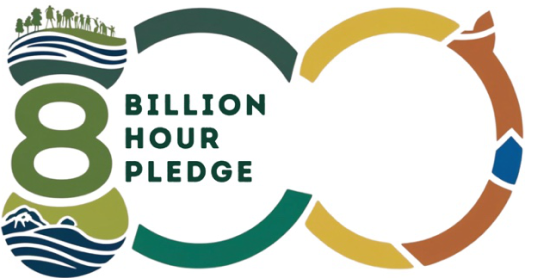IEG Founding Assembly
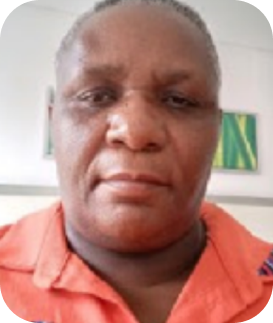
Esther Netshivhongweni
Founding Member and Global Chair
Esther Netshivhongweni
Founding Member and Global Chair
Hailing from the Makuya-Tshetshe and Thengwe-Vhatavhatsindi of Fundudzi tribes, Esther is an Indigenous leader from Africa with extensive experience in conservation and community development. Esther holds Bcom, Bcom(Hons) and Master’s of Commerce, International Finance and qualifications in Professional Management. She worked in academia, public sector, and mining before dedicating her career to community conservation. Esther is a traditional chief and an IP&LC environmental activist with over 30 years of experience in international conservation.
She is a founding member and chairs IEG global structure. She is the founder of African Community Conservationists and Community Guardianship Initiative which operate in nature.
Esther chairs International Environmental Guardianship (IEG) and participates in various panels and working groups focused in Biodiversity Credit Alliance and she is a BCA Task Force member representing IEG. conservation, and community empowerment. Esther served as a Co-Chair and a member of the Biodiversity Credit Alliance (BCA)/UNDP, EU and World Economic Forum – Demand Integrity Working Group and High-Level Principles. She also served as a member of Governance and Stewardship Working Groups of the International Advisory Panel on Biodiversity (IAPB) – UK and French Initiative on Biodiversity Credits. Esther is a Co-Chair of Southern African Development Community (SADC) – Global River Protection Coalition. Esher chairs the Community Associations of South Africans in Natural Resources for the IPs & LCs which is an affiliate of Community Leaders Network.
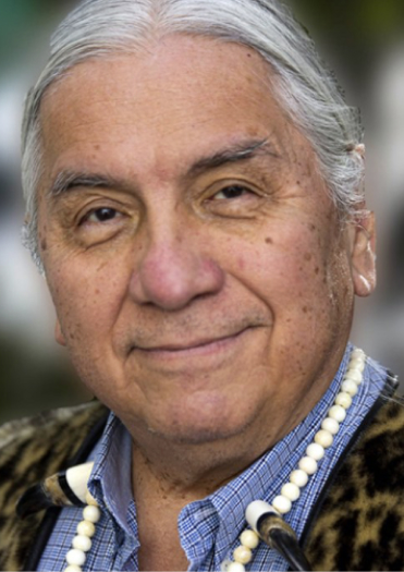
Patrick Anderson
Founding Member and North America Regional Chair
Patrick Anderson
Founding Member and North America Regional Chair
Patrick Anderson is a Tlingit Elder from Alaska working as a Translational Shaman who is engaged in soul healing. After a career as an attorney and businessman, Patrick is now involved in promoting Alaska Native and American Indian policy development and promoting improved health care services worldwide, particularly the impact of climate change on health. He is interested in the use of biodiversity credits to empower indigenous populations in addressing climate change.

AJ Bird
Founding Member
AJ Bird
Founding Member
A Treaty of 8 Indian and band member of the Deninu K’ue First Nation in Canada, AJ is the Managing Director of Bird & McCrimmon, a 100% Dene entrepreneur owned business focused on bridging the gap between Indigenous Nations and technology for climate solutions. AJ is a former police officer trained in investigations and hostage negotiations who transitioned these skills to the business sector to deliver strategic advisory, negotiations, business development and climate finance opportunities with a particular focus for Indigenous nations navigating carbon and biodiversity.
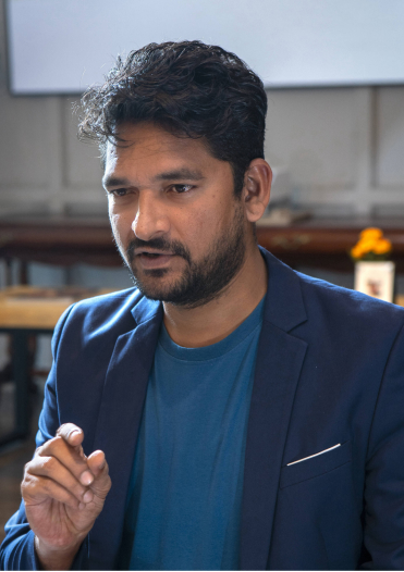
Swapnil Chaudhari
Founding Member
Swapnil Chaudhari
Founding Member
Swapnil, through GroundUp Conservation in India, works with IP&LCs in South Asia in designing and developing long-term restoration programs along with bringing direct funding to grassroots organisations in IP&LCs territories. His work focuses on building organisational capacities of grassroots NGOs, designing landscape restoration programs using a bottom-up approach and building conservation enterprises in critical biodiversity hotspots. More information on his work is available at www.groundupconservation.com
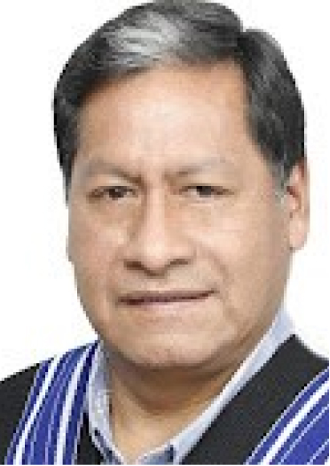
Miguel Chindoy
Founding Member and Latin American Regional Chair
Miguel Chindoy
Founding Member and Latin American Regional Chair
Miguel Chindoy is a member of the Kamëntšá indigenous people of Sibundoy, Putumayo, Colombia. Miguel is a representative of the Indigenous Association for the Governance of the First Peoples, AGRO-PUEBLOS. In 2022, Miguel led the ‘Escuela de pensamiento Mayor’ initiative in Bogotá, producing the first training booklets for indigenous youth. Currently, Miguel manages the ‘Rights of Nature‘ initiative in partnership with SAVIMBO.
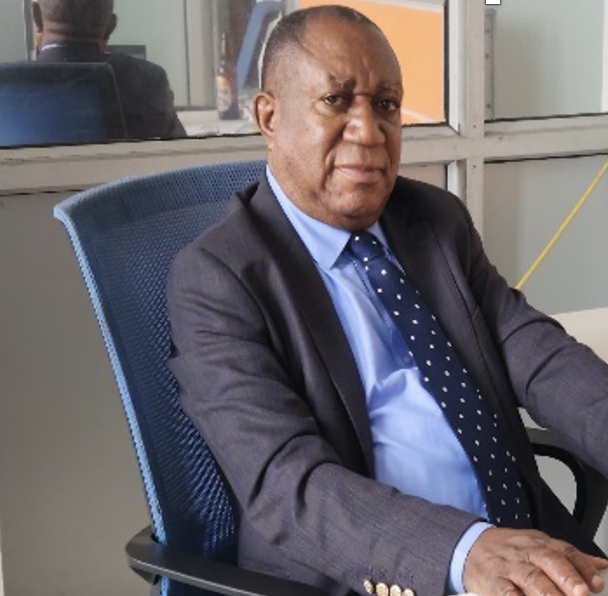
Kapupu Diwa
Founding Member
Kapupu Diwa
Founding Member
Mr. Kapupu Diwa is a leader of the Twa ethnic group and president of the League of Indigenous pygmy Associations of Congo known by the French acronym LINAPYCO. Kapupu is also a member of the Dedicated Grant Mechanism (DGM) global steering committee and DGMC DRC national steering committee.
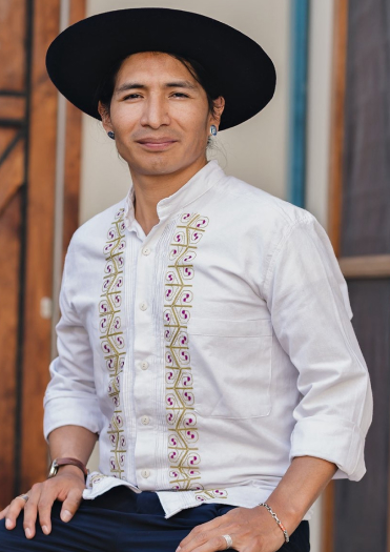
Nkwi Flores
Founding Member
Nkwi Flores
Founding Member
Nkwi Flores (sibling/hir) is a citizen of Apya Yala – Turtle Island, Kara-Kichwa Nation – Kutakachi Pueblo-Chichupamp Ayu-Runa, deeply rooted in the Andean and Amazonian cultural heritage experiences of Ecuador. As a Runa/Indigenous kuyak-kamayuk/scientist and Ancestral Land Trustee, their work is at the forefront of Indigenous Komplexity Systems Theory in parallel with Western science to craft biokulture-ethics nature-based solutions. Their contributions challenge prevailing Western/Eurocentric narratives in the emerging nature market stemming from IPs’ rights, Indigenous data sovereignty, and the enfranchisement of IPs, and they are committed to socioenvironmental spatial justice, culture regenerability, and transdisciplinary research and policy-making, engaging with more-than-human and more-than-life accountability and care between humanity and nature.
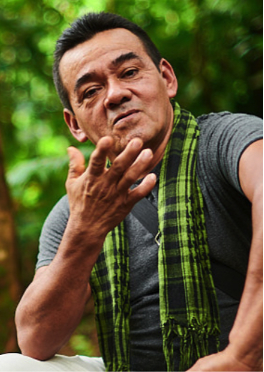
Héctor Jhony López
Founding Member
Héctor Jhony López
Founding Member
Héctor Jhony López (born 16 October 1965) is a Colombian conservationist and environmental activist with more than 20 years of experience in the defence of ecosystems. He has worked for WWF, one of the most important nature conservation organisations in the world. He is currently president of the village of Tigres del Alto, in the village of Villagarzón, Putumayo, where he leads community initiatives for the conservation of local fauna and flora.
In addition, Héctor Jhony works on behalf of the El Salado de los Loros Association, which covers 17 villages in the village of La Castellana in Villagarzón, Putumayo. From this position, he promotes projects that seek to promote the conservation of the natural environment and the sustainable development of the region.
As co-founder of Savimbo, an organisation dedicated to the preservation of biodiversity, he has been a key player in the implementation of camera-trap wildlife monitoring technologies. This innovative approach allows wildlife to be studied and protected in its natural environment, contributing to the conservation of species and their habitats.
His work has been fundamental in raising environmental awareness in local communities and in creating effective strategies for the protection of Putumayo’s ecosystems, a crucial region for the biodiversity and ecological balance of the Colombian Amazon.
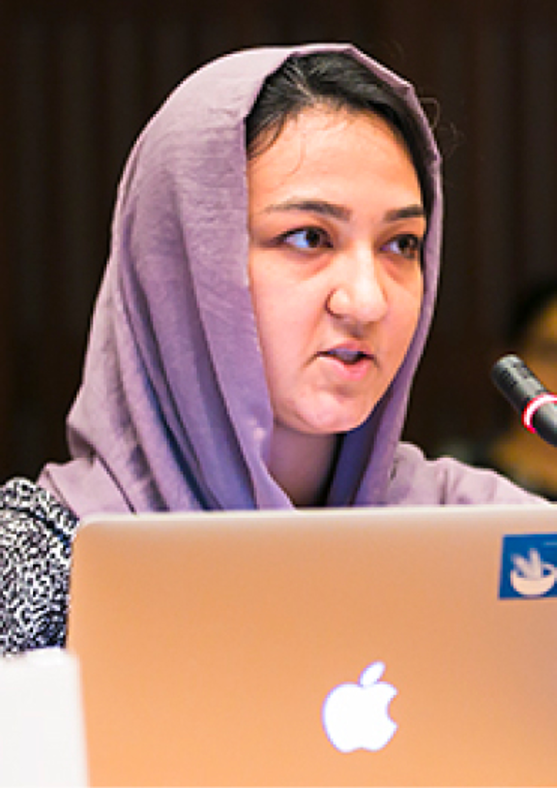
Dr Hanieh Moghani
Founding Member and Asia Regional Chair
Dr Hanieh Moghani
Founding Member and Asia Regional Chair
Hanieh Moghani is an Indigenous advocate, legal counsel, community facilitator, educator, and activist, working at the interface of science, policy, and society, with expertise in developing political, economic, and systems analysis models for complex problems involving biodiversity, climate change, water, energy, food, and environment to derive policy, law and governance insights. She holds a Doctorate in International Law, with a specialization in the impact of new technologies on biodiversity and farmers’ rights related to seed production and trade. With over a decade of experience, Hanieh has been involved in numerous projects advocating for the recognition of Indigenous and Community Conserved Areas and Territories (ICCAs), and the rights of Indigenous nomadic pastoralists and local communities to access and manage their traditional territories, biodiversity, and natural resources.
Her work focuses on the vital role of Indigenous Peoples in traditional knowledge, natural resource management, and food sovereignty. She highlights best practices in climate change adaptation and mitigation, water management, and sustainable agriculture, aiming to collaborate with Indigenous Peoples and local communities to eliminate poverty and hunger, enhance nutrition, protect biodiversity, and safeguard the intellectual property rights associated with Indigenous and traditional knowledge and Indigenous rights to their lands, territories, and resources. She also advocates for the liberation of Indigenous Peoples from war and all forms of colonialism, with a focus on achieving positive peace and justice for Indigenous Peoples.
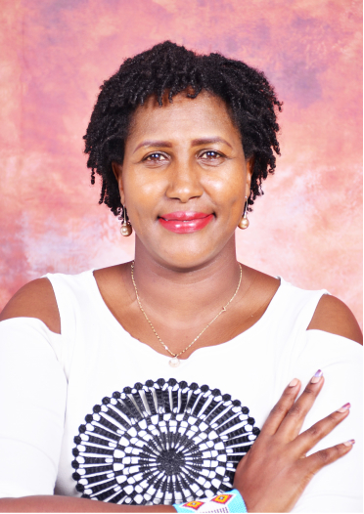
Patita Nkamunu
Founding Member
Patita Nkamunu
Founding Member
Patita is an Indigenous Woman of the Maasai tribe from Kenya. She is a Co-founder and Project Lead at EarthAcre, a nature asset development company whose mission is to amplify community knowledge with technology to advance nature stewardship. She is an impact-driven conservation professional with experience in natural resource conservation, policy lobbying, advocacy and public engagement. Her work integrates conservation and climate change mitigation in Africa, using capacity building, cross-sectoral partnerships, research, and the empowerment of both women and indigenous communities. Patita is a board member of the Kenya Wildlife Conservancies Association -National Conservancies Council, Member of Verra Sustainable Development Advisory Group (SDAG), Friends of Nairobi National Park, and Vice Chairperson of the Athi Kapiti Wildlife Conservancies Association. She is a recent graduate of the Master’s Degree in Conservation Leadership at the University of Cambridge.
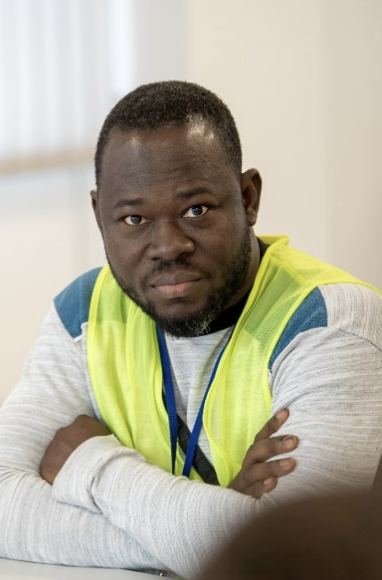
Olusegun Michael Ogundele
Founding Member
Olusegun Michael Ogundele
Founding Member
Olusegun Michael Ogundele is a transdisciplinary research scientist and community mobiliser. His research interests include conservation science and traditional ecological knowledge, political ecology, environmental governance research, politics of decision-making, meta-ecosystems and community ecology, political economy of nature markets and carbon credits, Climate sustainability, and legislative science advice. He has been working with local and indigenous communities since 2019. He is also a trained sustainability and circular economy consultant. Ogundele is a member of many academic research networks and professional groups – among this include Nigerian Environmental Society, Nigerian Science Policy Platform on Biodiversity and Ecosystem Services, International Network for Government Science Advice, Biodiversity Credit Alliance, Sydney Environment Institute, and the International Environmental Guardianship.
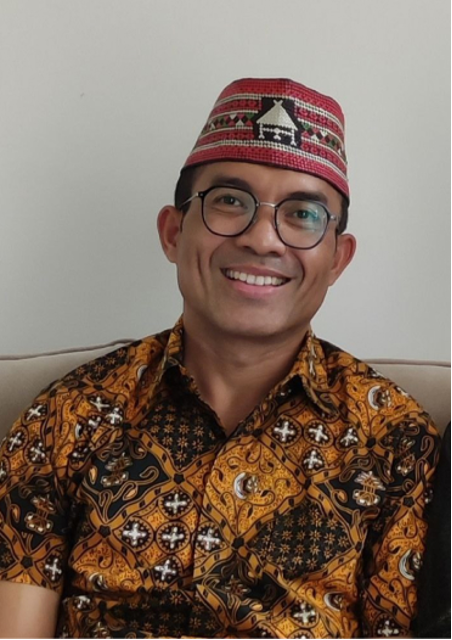
Bernadinus Steni
Founding Member
Bernadinus Steni
Founding Member
Bernadinus Steni is the Director of Kaleka Indonesia, an organization that promotes sustainability in global supply chains. They advocate for inclusiveness and justice in global supply chains including respecting and recognizing the rights of indigenous peoples.
